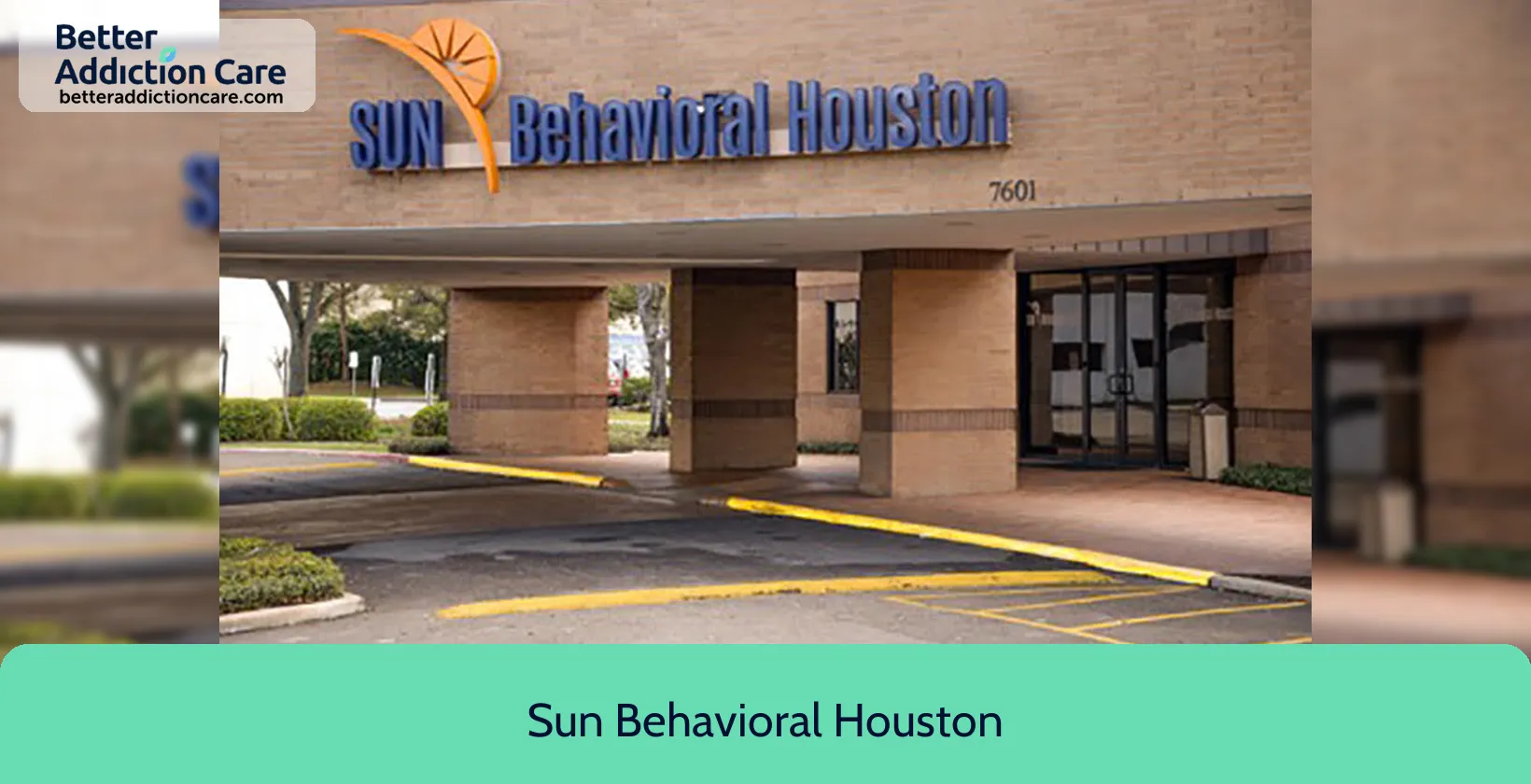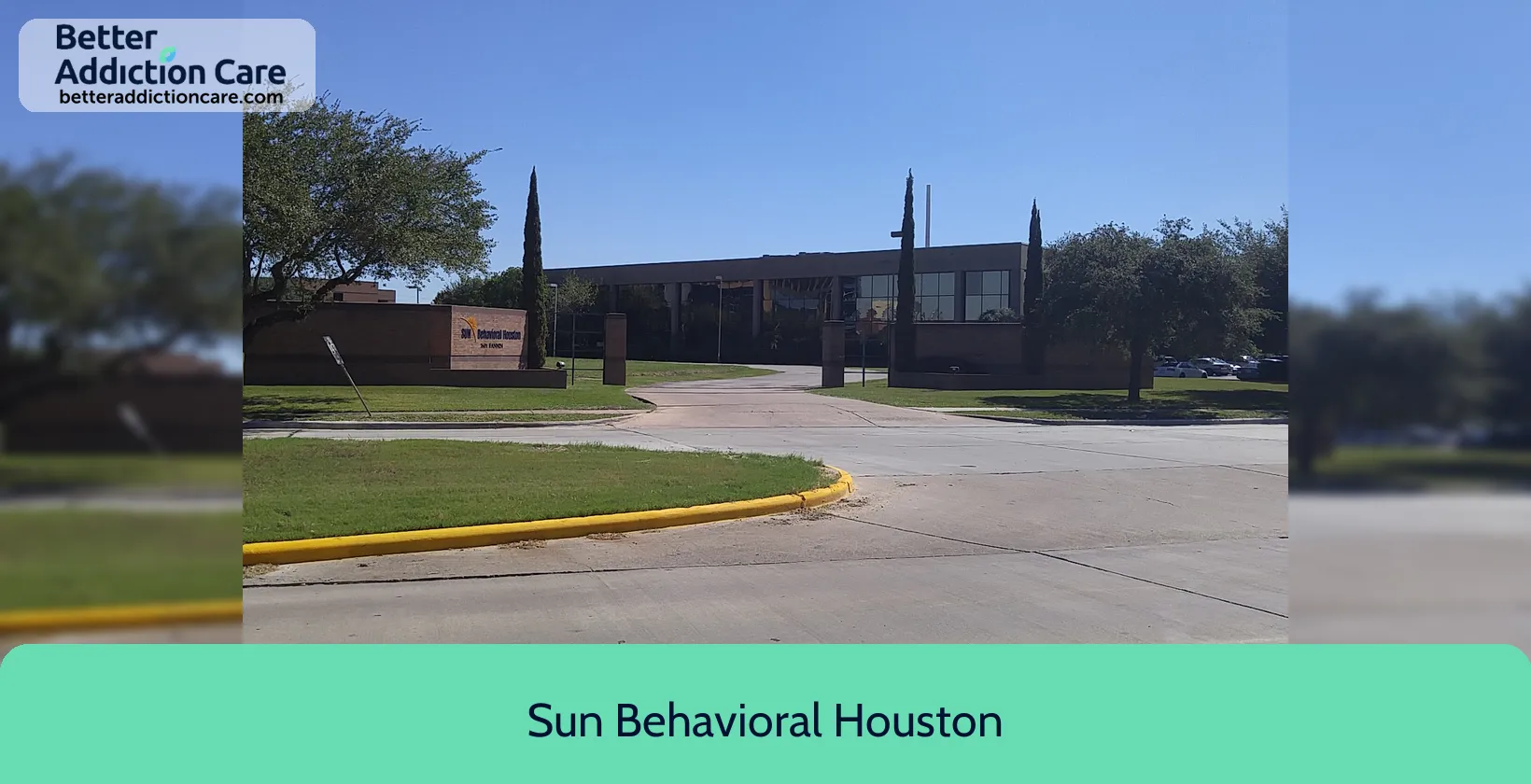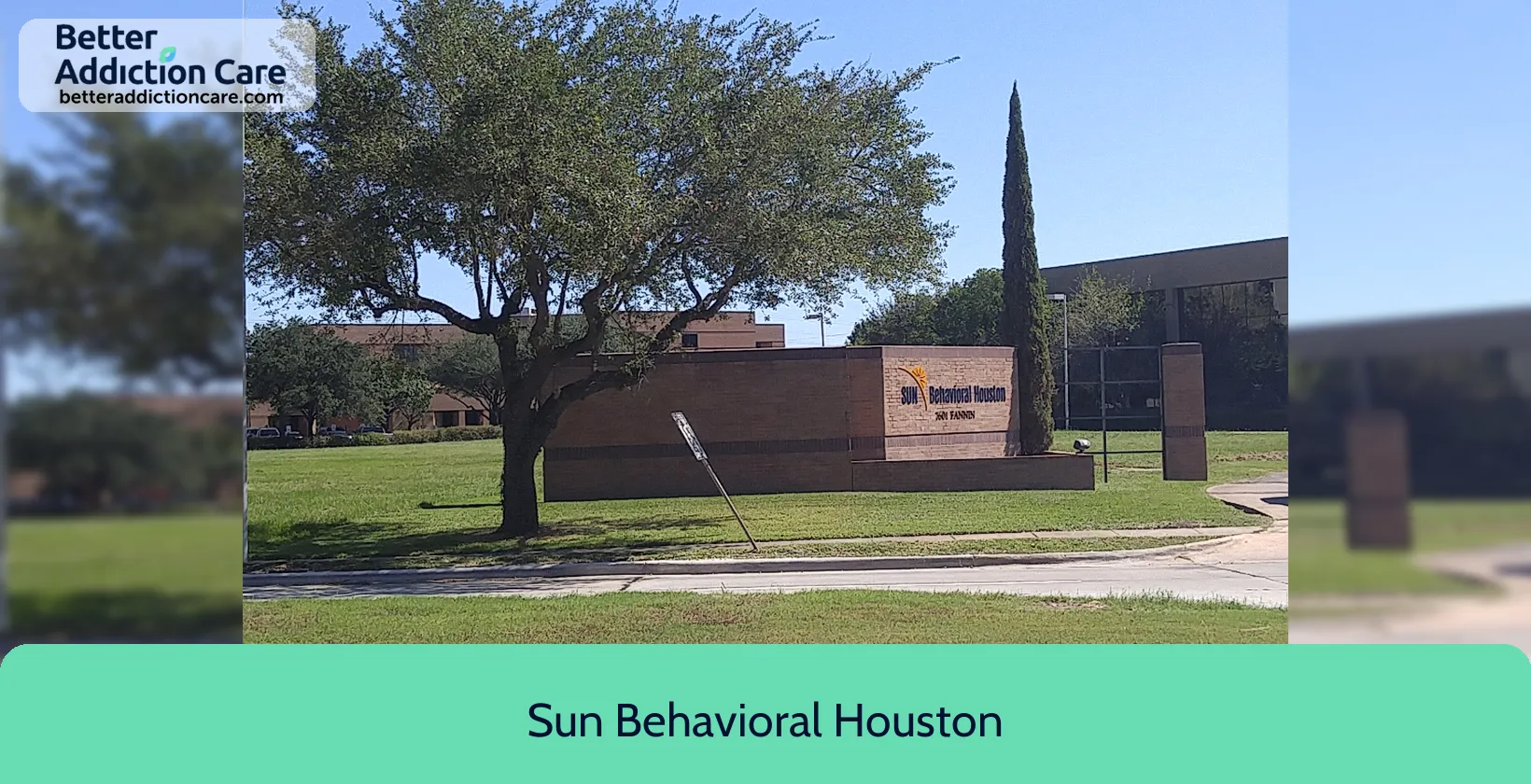Sun Behavioral Houston
Overview
Sun Behavioral Houston is an mental health treatment center that provides inpatient and outpatient treatment for men from 18+ years of age. As part of their special programs, Sun Behavioral Houston treats clients with co-occurring mental and substance use disorders, children/adolescents with serious emotional disturbance (sed), and persons 18 and older with serious mental illness (smi). To help patients achieve sobriety, Sun Behavioral Houston provides intake assessments. Afterward, patients receive couples/family therapy, group counseling, and cognitive behavioral therapy during treatment. Sun Behavioral Houston is located in Houston, Texas, providing treatment for people in Harris County, accepting cash or self-payment, medicaid, and medicare.
Sun Behavioral Houston at a Glance
Payment Options
- Cash or self-payment
- Medicaid
- Medicare
- Private health insurance
- Federal military insurance (e.g., TRICARE)
Assessments
- Screening for tobacco use
- Comprehensive mental health assessment
- Comprehensive substance use assessment
Age Groups
- Seniors or older adults
- Young adults
- Children/adolescents
- Adults
- Seniors
Ancillary Services
- Case management service
- Chronic disease/illness management
- Court-ordered outpatient treatment
- Diet and exercise counseling
- Education services
Highlights About Sun Behavioral Houston
6.77/10
With an overall rating of 6.77/10, this facility has following balanced range of services. Alcohol Rehabilitation: 8.00/10, Drug Rehab and Detox: 6.00/10, Insurance and Payments: 6.00/10, Treatment Options: 7.09/10.-
Alcohol Rehabilitation 8.00
-
Treatment Options 7.09
-
Drug Rehab and Detox 6.00
-
Insurance and Payments 6.00
Treatment At Sun Behavioral Houston
Treatment Conditions
- Alcoholism
- Mental health treatment
- Substance use treatment
- Co-occurring Disorders
Care Levels
- Hospital inpatient/24-hour hospital inpatient
- Partial Hospitalization Program
- Outpatient
Treatment Modalities
- Couples/family therapy
- Group counseling
- Cognitive behavioral therapy
- Dialectical behavior therapy
- Integrated Mental and Substance Use Disorder treatment
Ancillary Services
Languages
- Sign language services for the deaf and hard of hearing
Additional Services
- Pharmacotherapies administered during treatment
- Mentoring/peer support
- HIV testing
Special Programs
- Clients with co-occurring mental and substance use disorders
- Children/adolescents with serious emotional disturbance (SED)
- Persons 18 and older with serious mental illness (SMI)
Get Help Now
Common Questions About Sun Behavioral Houston
Contact Information
Other Facilities in Houston

6.77

6.85

7.43

6.77

6.77

6.91

6.53

6.81
DISCLAIMER: The facility name, logo and brand are the property and registered trademarks of The Right Step - Clear Lake, and are being used for identification and informational purposes only. Use of these names, logos and brands shall not imply endorsement. BetterAddictionCare.com is not affiliated with or sponsored by The Right Step - Clear Lake.



